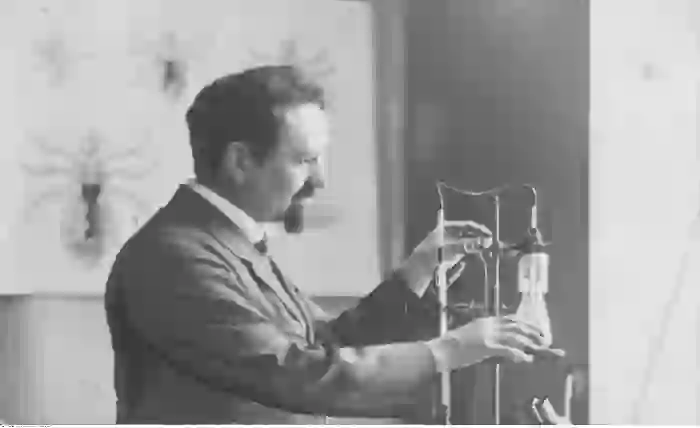Rudolf Weigl: A Pioneer in Vaccinology and Typhus Research

Rudolf Weigl A name that may not be as widely recognized as some of the world’s most famous scientists, yet his contributions to science and humanity are nothing short of remarkable. Born on September 2, 1883, in Przerów, Poland, Rudolf Weigl was a brilliant biologist and entomologist whose pioneering work in vaccinology and typhus research saved countless lives. In this comprehensive blog post, we will delve into the life, achievements, and enduring legacy of Rudolf Weigl, emphasizing his significant contributions to the world of science.
Early Life and Education
Rudolf Weigl journey towards becoming a prominent scientist began in his formative years. Born into a family of modest means, he displayed an early aptitude for biology. Growing up, he attended local schools and eventually pursued higher education at the renowned University of Lwów, where he developed a deep passion for entomology, the study of insects. Weigl’s academic pursuits laid the foundation for his future groundbreaking research.
Pioneering Work in Typhus Research
Typhus, a deadly disease caused by the Rickettsia bacterium, had long plagued humanity. Weigl’s groundbreaking work in the early 20th century revolutionized our understanding of typhus and paved the way for its prevention. Utilizing lice as vectors, he developed a live attenuated vaccine against typhus, a groundbreaking achievement that significantly reduced the disease’s incidence.
Read more about Rocket Mortgage: Revolutionizing Home Financing in the Digital Age
The Weigl Method: A Humanitarian Triumph
Weigl’s innovative approach to vaccine production, known as the “Weigl Method,” not only saved lives but also demonstrated his unwavering commitment to humanity. He employed a large workforce of Polish women and men during World War II, who delicately dissected lice and collected infected material for vaccine production. This clandestine operation, conducted under the guise of a typhus vaccine laboratory, not only saved countless lives but also protected the workers from deportation to Nazi labor camps.
Contributions to Public Health
Rudolf Weigl’s tireless efforts extended beyond his groundbreaking work on typhus. He made significant contributions to public health, focusing on improving healthcare systems and access to medical care in Poland. His advocacy for health education and disease prevention left an indelible mark on the nation’s healthcare landscape.
Legacy and Recognition
Despite facing numerous challenges throughout his career, including political turmoil and persecution, Rudolf Weigl’s legacy endures. His contributions to vaccinology and typhus research have saved countless lives and continue to influence modern medicine. Weigl’s humanitarian ethos and commitment to science have been recognized with various awards and honors.
Influence on Modern Vaccinology
Rudolf Weigl’s innovative approach to vaccine development, using insects as vectors, laid the groundwork for future advancements in vaccinology. His work not only contributed to the development of typhus vaccines but also inspired subsequent research in vaccine production and delivery methods. Today, his pioneering methods continue to inform vaccine development efforts against a range of infectious diseases.
Conclusion
In the annals of science, Rudolf Weigl’s name may not be as widely celebrated as some of his contemporaries, but his contributions to vaccinology and typhus research remain invaluable. His life’s work serves as a testament to the power of scientific innovation and the profound impact one individual can have on public health and humanity as a whole. Rudolf Weigl’s legacy continues to inspire researchers and healthcare professionals worldwide, reminding us of the boundless possibilities of science when coupled with unwavering dedication and compassion.




